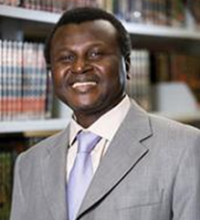
By Dr Alhagi Manta Drammeh
It is unfortunate that some Muslim scholars abuse and misuse Qur’anic passages to perpetuate and entrench oppression and repression. On the contrary, the theology of the Qur’anic discourses promotes liberation and freedom from all forms that subject humankind to bondage and slavery. The Qur’anic worldviews is based on universal fraternity and principles of mutual consultation (shura). In this context, the Prophet of Islam uprooted all forms of discrimination on the basis of ethnicity, tribe or race, as it was rampant during the jahiliyyah (ignorance) period. Thus, Prophet Muhammad cultivated in his companions real sisterhood and brotherhood. Upon his arrival in Medina, he built the first mosque in Medina in order to achieve three main aims: 1. To create a divine relationship of love and piety between the Creator and His servants with reference to Islamic monotheism (Tawheed) freeing and emancipating the pagan Arab from the worship of idols and the material to the worship of the Unique God-Allah 2. To develop fraternal relationship between the young Muslim community of Medina based on mutual love, respect, compassion and forgiveness 3. To inculcate in Muslims a positive attitude to other communities emphasising the fact that Islam is outwardly and truly universal and de-mystifying the myth and stereotype that Islam and Muslims are inwardly. In this way, the Prophet created a civic society in Medina that was pluralistic and diverse in light of citizenship (muwatana) as re-elected in the constitution the Prophet wrote to outline the relationship between different communities in Medina This reflection came as a result of our commemoration of 1437th year of the migration of the Prophet and his companions to Medina. It was an important juncture of the history of Islam and indeed Muslim relations with the people of the Book (ahal al-Kitab). The Prophet fasted the 10th of Muharram because the Jews fasted it in commemoration of the divine intervention in rescuing Prophet Moses and the Israelites. It is a reminder of the long chain of Prophecies from Prophet Adam through Prophets Nuh, Ibrahim, Musa, Isa to Prophet Muhammad (May Allah’s peace and blessings be upon them all). Another important point I have alluded to is the issue of citizenship that the Prophet of Islam cultivated in his followers that despite their linguistic, tribal, racial and religious differences, they shared Medina as their city-state. Therefore, I encourage our brothers and sisters here in Europe and the West that they share the land with their fellow citizens from other faiths and races. In fact, there is no contradiction between being a good Muslim and being a good citizen of any country that respects the rule of law and the inviolability and sanctity of human life and dignity.
Finally, I reiterate that the theology of Qur’an is one of liberation, justice and fairness. Islam has come to promote that theology. Any reading that suggests oppression and misrule is misguided and misconstrued. Website: www.tircglasgow.org.uk
